Higher Education Leaders in the field of continuing education gather to discuss common myths (and their hopes) about non-traditional students. Here is the Q&A with Frank Britt, CEO of Penn Foster.
What do you think are the top 3 character traits of an adult learner?
Our experience with non-traditional students has shown us that compared to traditional age students adult learners typically have much more grit and resilience than expected. Having overcome so many real-world challenges in their lives, most adult learners have learned to adapt and adjust. Despite many challenges, they still maintain an aspiration to learn and be even more successful in their lives.
Second, an important character trait of adult learners is the courage to change. There’s a certain vulnerability that comes with learning new things, being exposed to something you don’t know and putting yourself out there ― especially as you get farther from full-time schooling. It takes tremendous conviction to seek this exposure and commit to public self-improvement.
Third, adult learners are great multitaskers. They’ve been able to juggle a multitude of responsibilities throughout their lives and have now pivoted to take on an additional challenge that tests their self-discipline and pushes new mental muscles to sustain engagement levels.
What piece of advice would you give and adult thinking about going back to school or finish their degree?
Michael Lewis, the founder of the “When to Jump” community movement, has helped showcase the key to making big life moves. Rather than a single major life shift, the most thoughtful transitions can often occur by taking small steps to build steady momentum. Adult learners must be mindful of the academic summit but be focused first on what is right in front of them and seek to master each skill and step on the way to the top. We encourage our adult learners to start by envisioning their goals and writing them down. We ask them to think about how they will overcome obstacles and handle barriers that might disrupt their learning. It is all about consistent and important small steps and making incremental progress.
Often even basic shifts in practices, such as talking about goals as if they have already become reality, can help change adult learner outcomes. For example, rather than saying “I want to be a college graduate,” say, “when I’m a college graduate…” Stating intentions in this way serves as a method to hold oneself accountable, pivots thinking to a growth mindset and encourages stronger support systems. We see time and time again that this mentality most often helps adults reframe how they approach their academic and skills-related journey and works to condition them to the pending challenge.
What do you think is the biggest misconception surrounding adult learners?
It’s a myth that adult learners are not pursuing a rigorous learning experience if it is not in pursuit of a college degree. Consider many skilled trade occupations, such as residential electrician and diesel engine repair, where knowledge ― and experience ― must be highly applied to improvise in real-world conditions. This requires a worker to meld the intellectual and the applied to address complex tasks and generate functioning results. This is higher-level thinking that is on par with that pursued in traditional academic degrees.
Another misconception surrounding adult learners is ineptitude with technology. Though adult learners aren’t as digitally native compared to millennials, they’ve lived through more technology shifts and innovations in their lifetime than young adults have and are typically fast followers of technology in periods of history where change is accelerating.
How do you think organizations/employers can help support the majority of our nations students?
Define non-traditional career pathway models. Currently, we do not have enough targeted resources for adults who want to go back to school and/or make a career shift. Sites like Roadtrip Nation are of tremendous value and designed to help young people map their interests to a career path, and to see what’s possible. However, the traditional notion of linear career pathways don’t apply to adult learners. Their career paths are complex and often reflect a lattice instead of a ladder. Adults transitioning careers need better data-driven pathways based on local-level career labor data that allows them to pivot their existing skills laterally into new roles and sectors. This is the key imperative: converting talents into value that are relevant in the contemporary workplace. The AARP’s Back to Work 50+ is a wonderful example of nation-wide initiative designed to create new pathways tailored to second-chance learners.
Adult learners must be socially encouraged across society. We must work to lift taboos and negative thinking towards these learners and celebrate people who made the jump back to career-focused education and training. A new ‘Got Skills?’ campaign could work to build positive visibility for adult learners, as it sends an accessible, affirming message. We must encourage adult learners to reinvest in education by making it a “cool” and widely accepted choice.
Finally, there are nontraditional education and training organizations specifically engineered to support the 21st century learner, including adults. Several key components that these organizations offer include: self-paced learning, credit for prior life experience, high affordability and a wrap-around support system for students. Additionally, appropriate levels of academic and social interventions can help improve persistence rates and outcomes for adult learners. Education organizations and employers of all kinds are going to play a major role in the coming decades to bridge the educational divide in our country by working together and stepping up to provide alternative education solutions.
